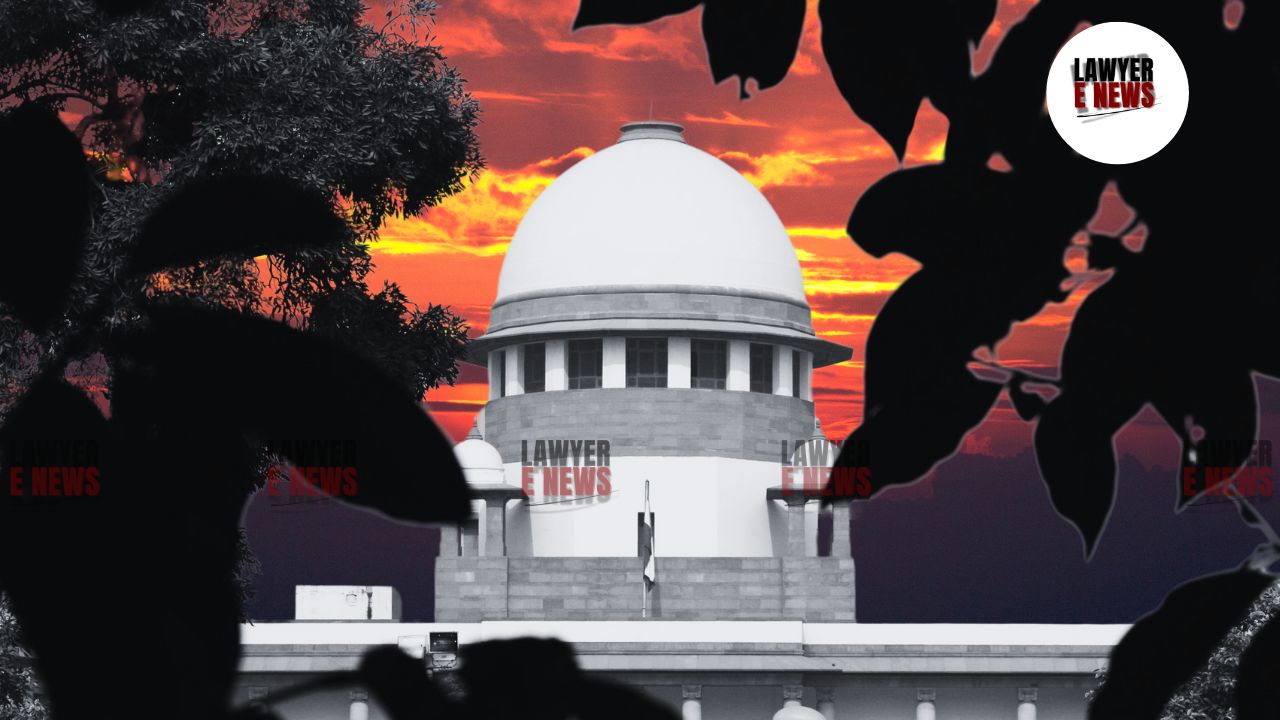-
by Admin
16 February 2026 10:43 AM



Misconduct Constituting an Offence Involving Moral Turpitude is Sufficient to Forfeit Gratuity –Supreme Court ruled that gratuity can be forfeited for misconduct constituting an offence involving moral turpitude, even if there is no conviction in a criminal case. The Court overturned previous interpretations that required a criminal conviction for such forfeiture and held that a disciplinary authority’s finding is sufficient.
Justice K. Vinod Chandran, delivering the judgment, made it clear: "The law does not require a criminal conviction for forfeiture of gratuity under Section 4(6)(b)(ii) of the Payment of Gratuity Act, 1972. If the misconduct itself constitutes an offence involving moral turpitude, gratuity can be forfeited without the necessity of criminal proceedings."
The case revolved around employees dismissed for serious misconduct and whether their employers could legally forfeit gratuity without a formal criminal conviction. The appellants included Western Coal Fields Ltd. and the Maharashtra State Road Transport Corporation (MSRTC), both of whom had denied gratuity to terminated employees for actions deemed to involve moral turpitude.
In one case, an employee of Western Coal Fields Ltd. was found to have forged his birth certificate to secure employment, while in another, conductors of MSRTC were found guilty of misappropriating fares collected from passengers. The employers forfeited their gratuity, citing Section 4(6)(b)(ii) of the Payment of Gratuity Act, 1972, which allows forfeiture if the termination is for misconduct constituting an offence involving moral turpitude.
The respondents challenged these forfeitures, arguing that in the absence of a criminal conviction, gratuity could not be denied. The High Court ruled in favor of the employees, relying on the Supreme Court's earlier judgment in Union Bank of India v. C.G. Ajay Babu (2018), which suggested that forfeiture of gratuity under Section 4(6)(b)(ii) requires a criminal conviction.
Supreme Court Overrules Earlier Interpretation and Clarifies the Law
Rejecting the High Court’s reliance on C.G. Ajay Babu, the Supreme Court clarified that a criminal conviction is not required for forfeiture of gratuity if the misconduct itself constitutes an offence involving moral turpitude.
The judgment explicitly stated: "The requirement of the statute is not the proof of misconduct but that the act should constitute an offence involving moral turpitude. The law does not demand that such an offence be established in a court of law through criminal proceedings."
Referring to Jaswant Singh Gill v. Bharat Coking Coal Ltd. (2007), the Court noted that while this precedent did not mandate a criminal conviction for forfeiture, its position was overruled by a larger bench in Mahanadi Coalfields Ltd. v. Rabindranath Choubey (2020), which allowed continuation of disciplinary proceedings even after retirement. The Court, therefore, dismissed the idea that a criminal conviction was necessary.
Misconduct Involving Fraud and Misappropriation Justifies Gratuity Forfeiture
Analyzing the facts, the Supreme Court held that both cases—forging a birth certificate to obtain employment and misappropriating passenger fares—constituted offences involving moral turpitude and, therefore, justified gratuity forfeiture.
In the case of the Western Coal Fields Ltd. employee, the Court stated: "The employee secured appointment fraudulently by submitting a forged birth certificate. If his actual date of birth had been disclosed, he would never have been appointed. The substratum of his employment is fraudulent, and he cannot now claim the benefits of an employment that was never lawfully his."
Citing Devendra Kumar v. State of Uttaranchal (2013), the Court reinforced the principle that misrepresentation to secure employment constitutes an offence involving moral turpitude, warranting the forfeiture of gratuity.
"When an appointment is obtained by fraud, the question is not whether the applicant was suitable for the post but whether the appointment itself was fraudulently secured. Even if the pending criminal case does not involve moral turpitude, the act of suppression of material facts does."
Similarly, regarding the MSRTC conductors, the Court ruled that misappropriation of fares, regardless of the amount, is an offence involving moral turpitude. However, it showed some leniency in determining the extent of forfeiture.
"Even if minimal amounts are misappropriated, the act itself warrants termination. However, considering the nature of employment and the meager amounts involved, the forfeiture of gratuity should be limited to 25% rather than a complete forfeiture."
Employers Can Forfeit Gratuity for Serious Misconduct Without a Criminal Conviction
The Supreme Court’s judgment has now established a clear legal precedent that an employer can forfeit gratuity under Section 4(6)(b)(ii) of the Payment of Gratuity Act if the employee's misconduct constitutes an offence involving moral turpitude, even in the absence of a criminal conviction.
Justice K. Vinod Chandran, delivering the ruling, summed up the Court’s stance: "The law does not require a conviction for forfeiture under Section 4(6)(b)(ii). The only requirement is that the misconduct must be such that it could, in normal circumstances, constitute an offence involving moral turpitude. The disciplinary authority has the discretion to decide the extent of forfeiture, depending on the severity of the misconduct."
By allowing employers to forfeit gratuity without requiring a criminal conviction, this ruling strengthens the power of disciplinary proceedings in public sector organizations and ensures that employees dismissed for serious misconduct do not continue to benefit from their fraudulent employment.
Date of Decision: 17/02/2025
